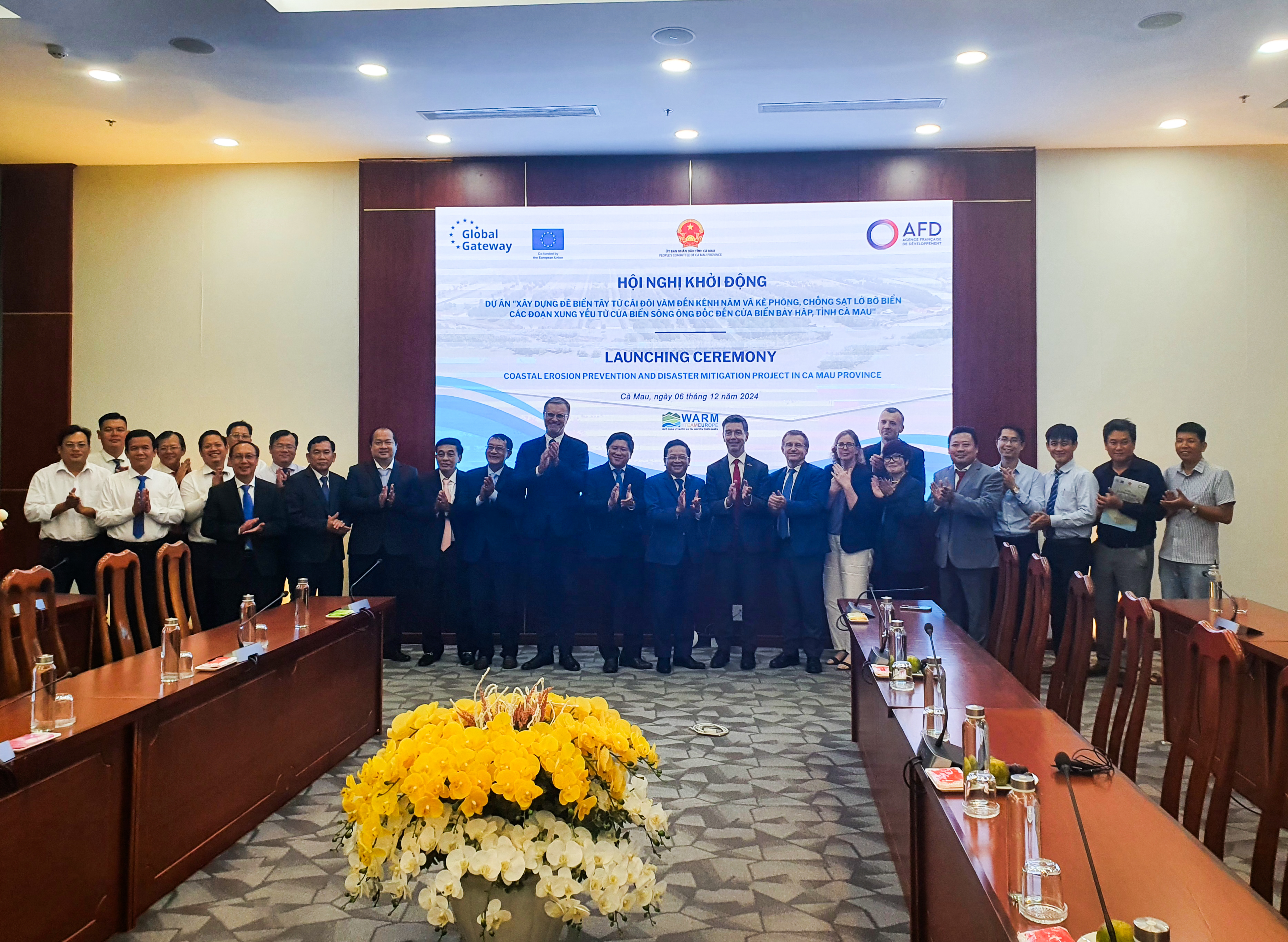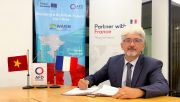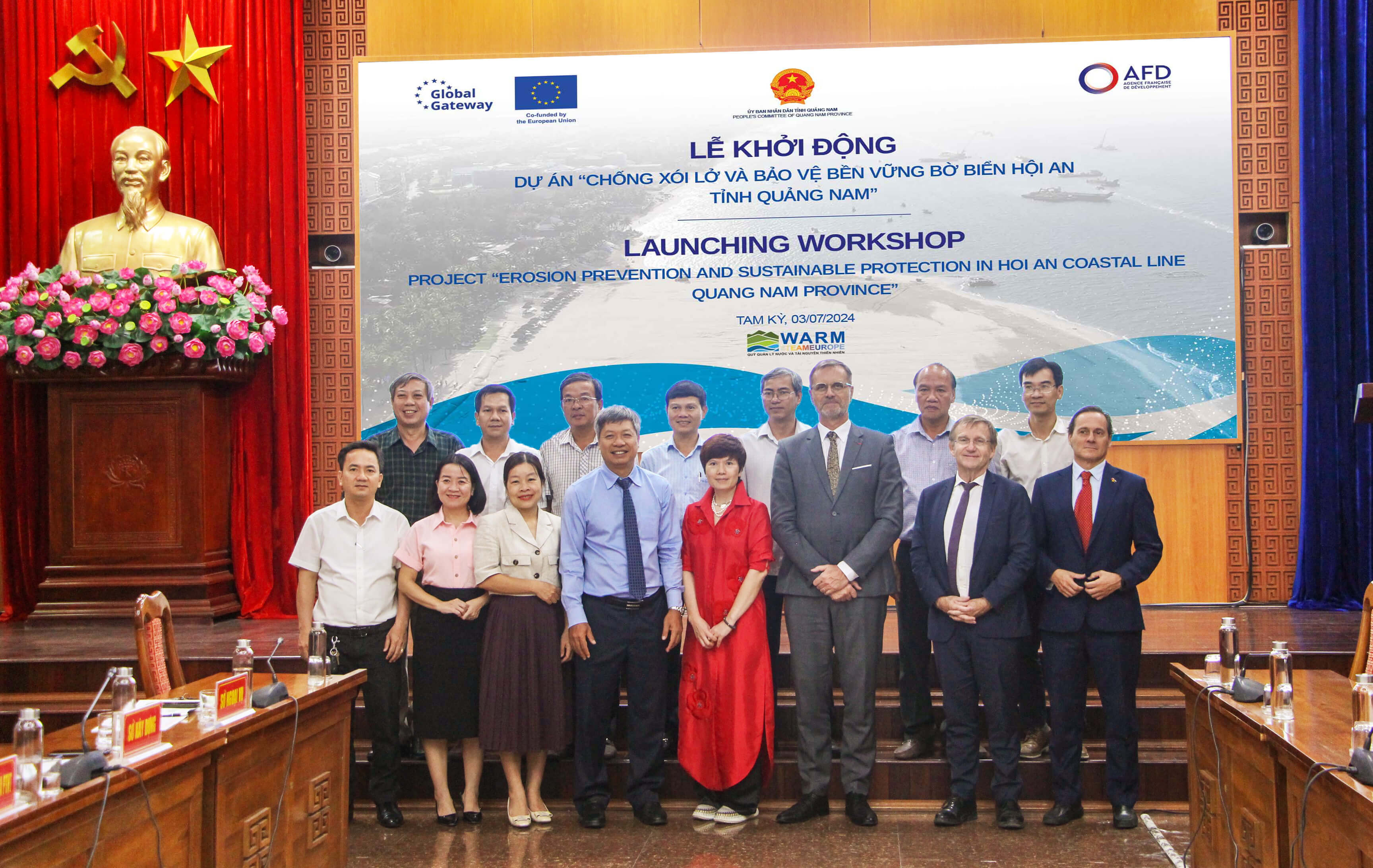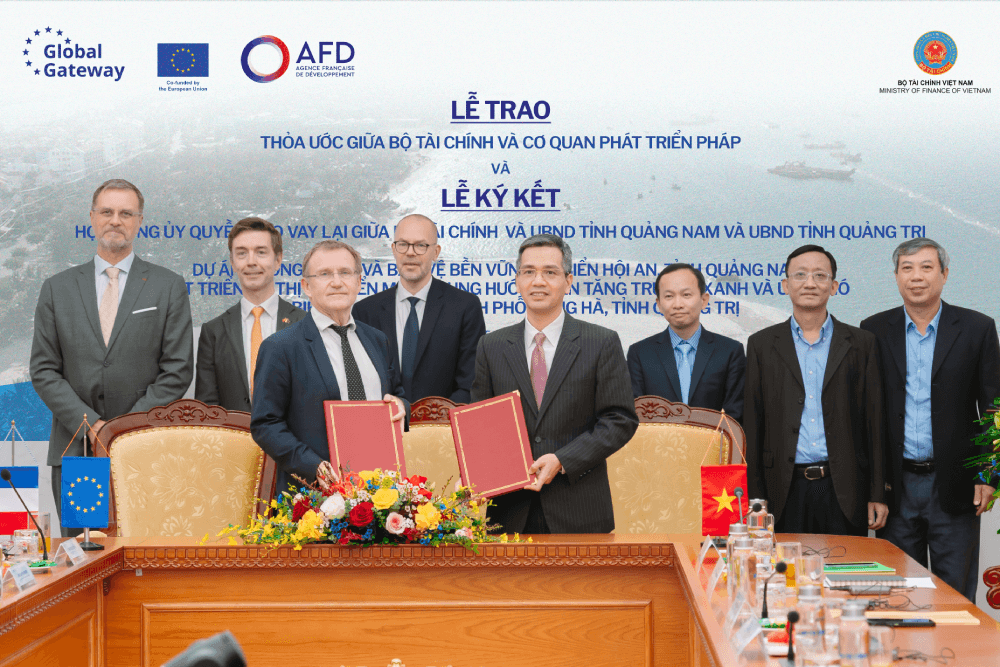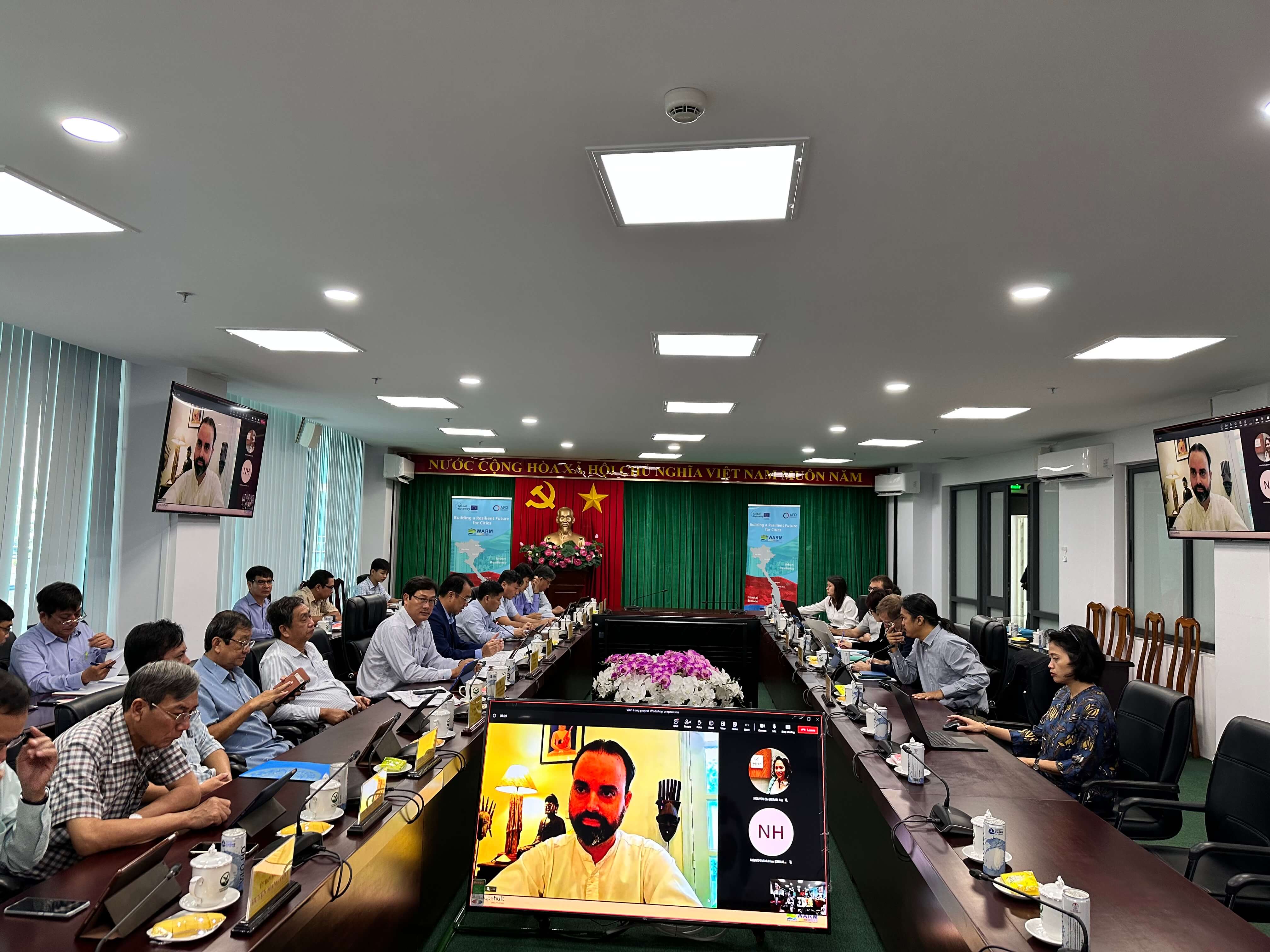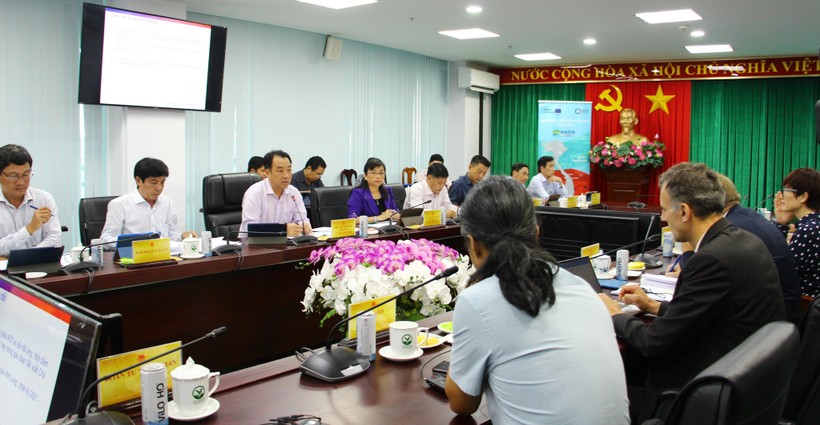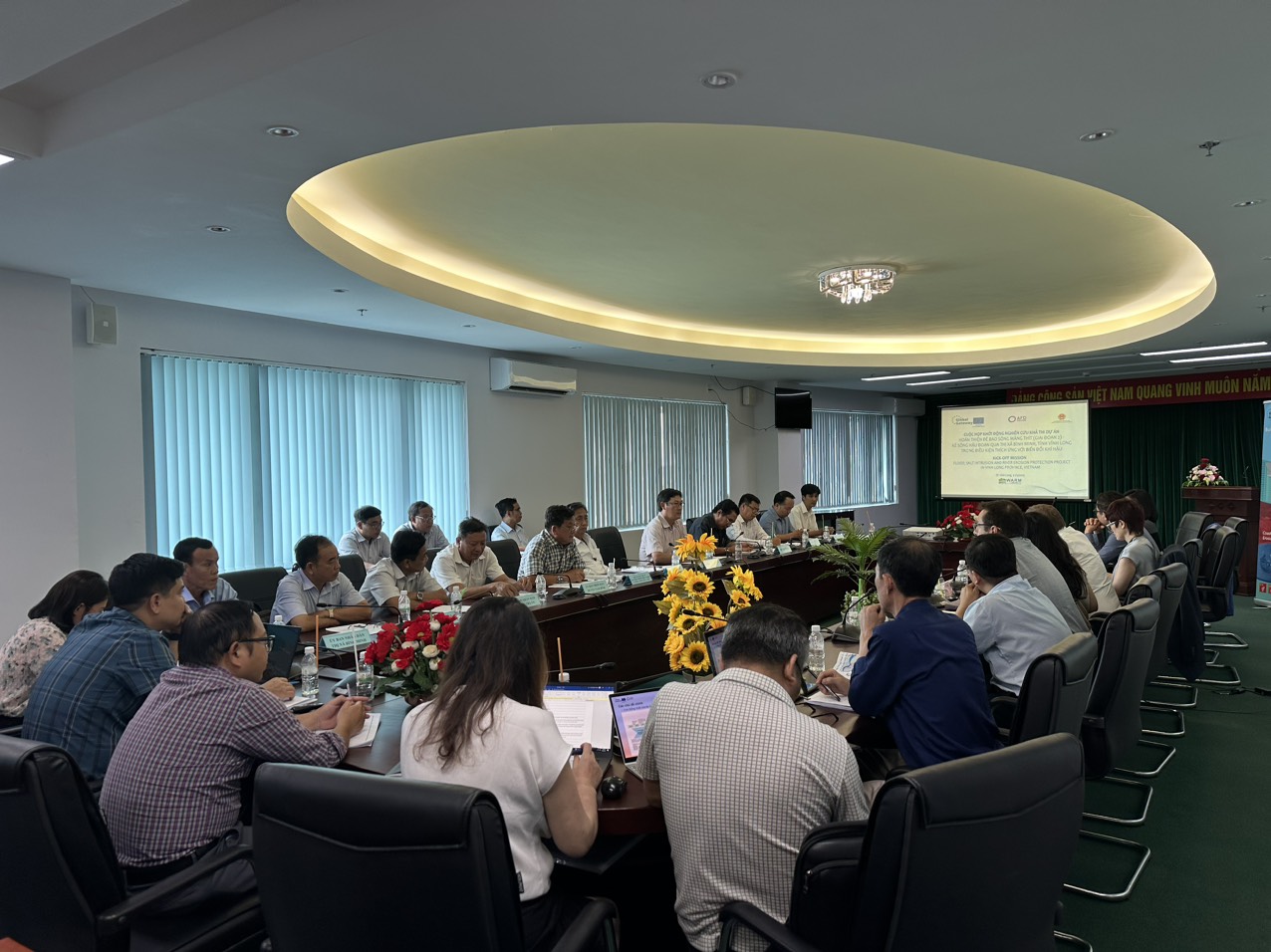NEWS & EVENTS
Consultation Meeting “Integrated Water Resources Management And Piloting River Basin Organization On The Vu Gia - Thu Bon River Basin”
On March 7, 2024, the Ministry of Natural Resources and Environment of Vietnam (MONRE), in collaboration with the French Development Agency (AFD) and the European Union (EU), convened a consultation meeting on integrated water resources management and piloting a River Basin Organization (RBO) for the Vu Gia-Thu Bon river basin. The meeting gathered representatives from MONRE, the Ministry of Agriculture and Rural Development (MARD), the Vietnam Electricity Corporation (EVN), local departments and agencies of Quang Nam and Da Nang, key industrial water resource users in the Vu Gia - Thu Bon river basin, domestic and international experts.
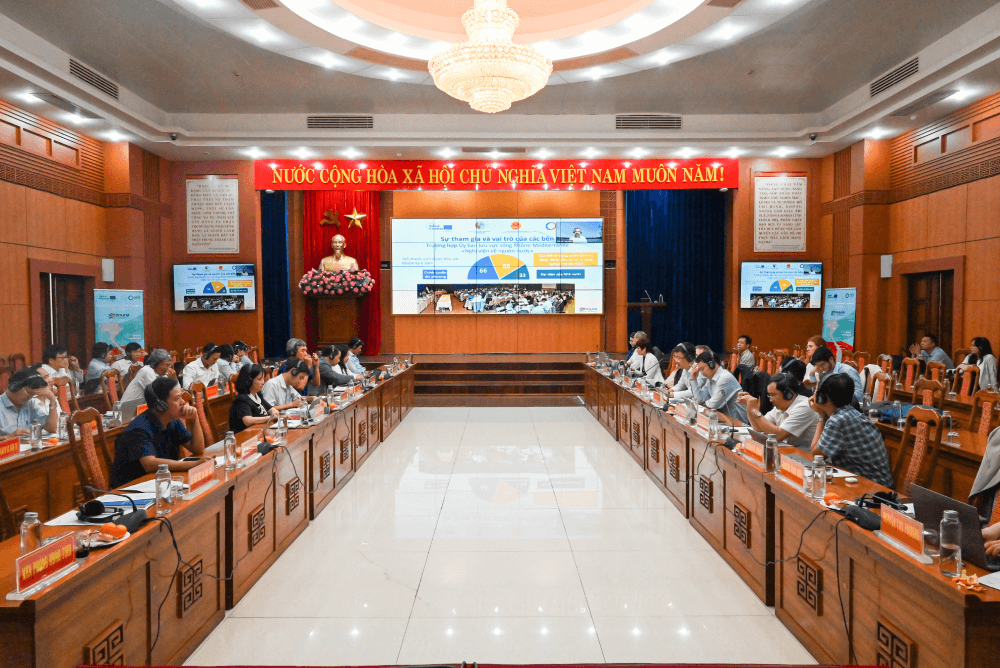
Overview of the workshop
The Vu Gia - Thu Bon basin faces significant water security challenges due to climate change impacts, uneven seasonal flows and rising demands from socioeconomic development. Currently, coordination between sectors and provinces is limited within Vietnam's administrative-focused framework. To address these issues, participants explored piloting an RBO governance model for the basin with effective measures and laying the foundation for improved water resource management in the region.
The program aims to foster a shared understanding of several key aspects, including (1) identifying shortcomings in the coordination and integrated management of the river basin, specifically within the context of Vu Gia - Thu Bon and the Vu Gia Thu Bon River Basin Coordination Board, (2) exploring different perspectives and approaches in establishing river basin organizations, as well as understanding the new provisions outlined in the Law on Water Resources, (3) assessing the needs and developing a roadmap for establishing river basin organizations, along with considering the technical basis (such as decision support tools) and institutional mechanisms required for effective collaboration among stakeholders, and (4) identifying areas that require further support and research to bolster the implementation of the established roadmap. Within the meeting, Mr. Alain Bernard, Representative of OI Eau (International Office for Water), shared the lessons learned in different countries on the water resource management approach and in particular, water basin organization. Mr. Stéphane Rivet, representative of CNR (Compagnie Nationale du Rhône) - the corporation that manages all facilities in the Rhône river basin (France), shared insights into the operating model of the Rhone river basin organization in France. He highlighted the experience of managing various projects in the Rhone river basin. Additionally, he discussed the operation of a decision support system (DSS), its potential benefits, especially in river watershed management.
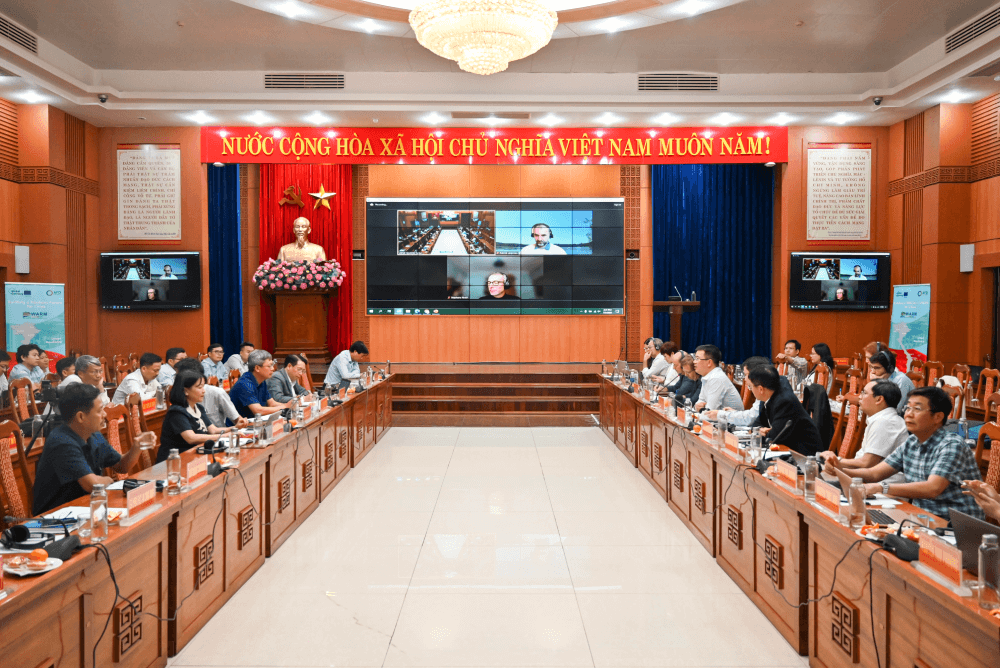
Mr. Stéphane Rivet shared his insights
Mr. Le Tri Thanh, Chairman of the Quang Nam Provincial People's Committee, emphasized the challenges of implementing RBOs in Vietnam and the need for consensus among local governments and central agencies. A legal framework is also crucial, such as a decree permitting the Vu Gia-Thu Bon River Basin Management Organization pilot. Knowledge gained can inform other basins. RBOs eliminate confusion in river management, attract investment, and create coordination between sectors and localities. Decisions made consider common basin interests rather than individual ministry/agency priorities.
According to Mr. Chau Tran Vinh, Director of the Department of Water Resources Management at MONRE, integrated river basin management is an essential trend incorporated into Vietnam's 2012 Law on Water Resources, with further amendments planned for 2023. However, water management faces challenges as over 60% of supply comes from international rivers while demands from hydropower, agriculture, transportation, industry and daily use are increasing. The 2023 Draft Law aims to address this through integrated and administrative approaches tailored to Vietnam. It is crucial to establish River Basin Committees with clear responsibilities and involvement of sectors, localities, ministries and major users. MONRE plans to issue guidance on the functions, tasks and structures of such committees and sub-committees. A Vu Gia-Thu Bon pilot is pursued. Greatest challenges include selecting modern, appropriate operating and decision support models ensuring effective, authorized operations and long-term financing. With expert and locality input, MONRE aims to determine optimal models for specific basins.
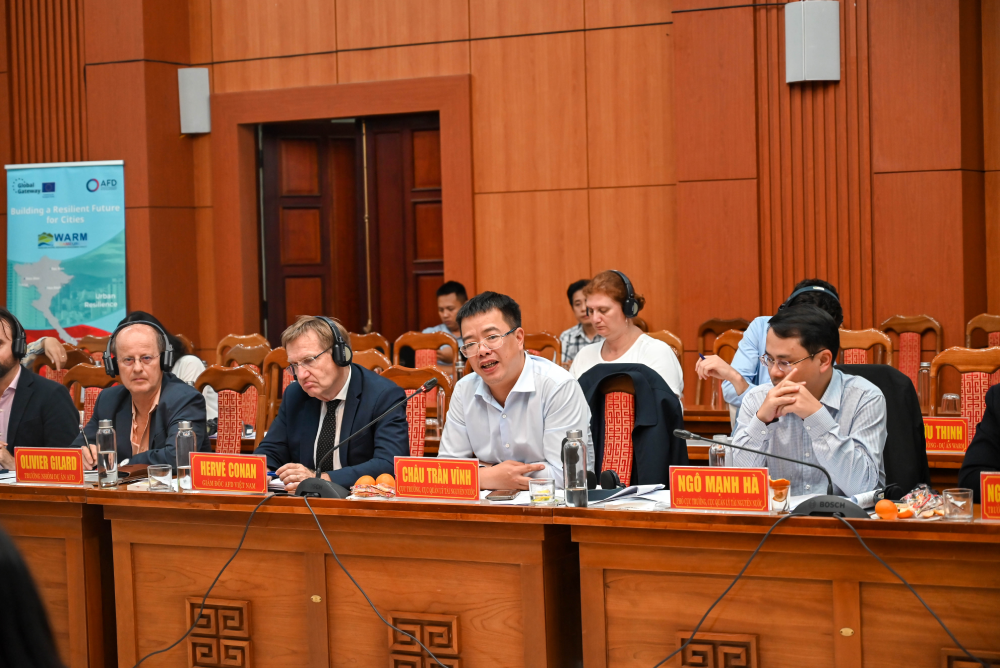
Mr. Chau Tran Vinh spoke in the meeting
“The WARM Facility aims to improve the resilience of populations and economic activities to water-related hazards which makes the geography of Vietnam particularly vulnerable to Climate Change. The EU therefore adheres great importance to this RBO initiative, which endeavours to improve the resilience to climate change collectively, through an integrated water resources management.” said the representative of the European Union Delegation to Vietnam.
Mr. Hervé Conan, Director of AFD Vietnam, expressed AFD's commitment to providing ongoing technical and financial support for the implementation of the river basin organization pilot project in Vietnam. He noted that in December 2023, the Vietnamese Government approved the "Coastal Sustainable and Protective Protection in Quang Nam Province" project financed by an AFD loan and an EU grant via the WARM Facility, which supports the technical assistance component. The project aims to restore coastal areas and promote integrated management of coastal zones and river basins through specific action plans and active participation of multiple stakeholders including the private sector, following an integrated management mechanism from source to coast. Mr. Conan expressed hopeful anticipation that the amended Law on Water Resources would pave the way for practical activities on the ground. He emphasized the importance of participation of all relevant parties in decision making to ensure benefits for all parties and limit negative effects on water resources utilization.
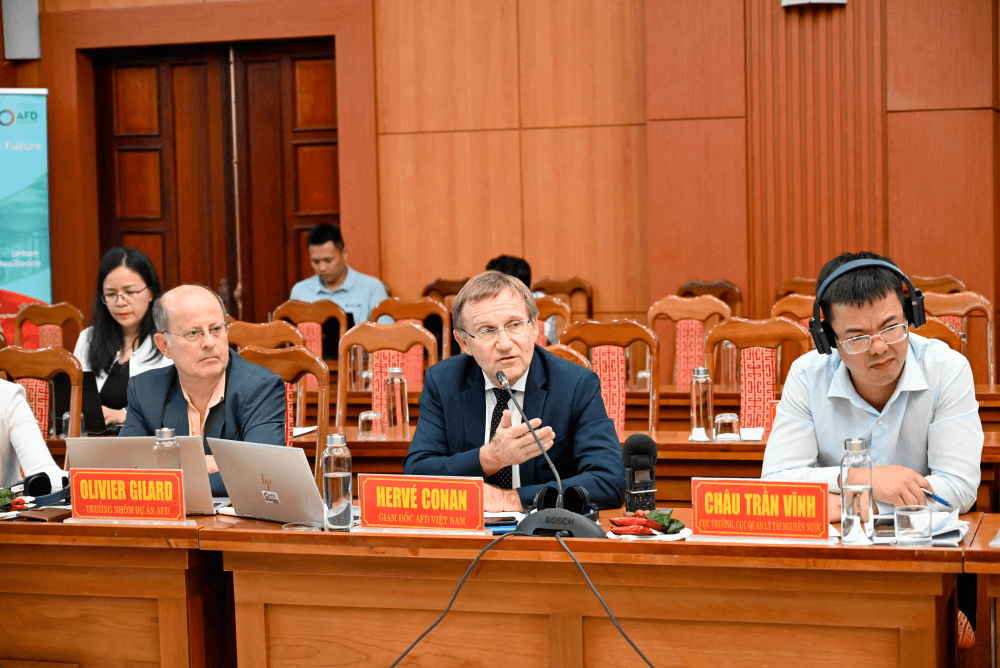
Mr. Hervé Conan, Director of AFD Vietnam expressed AFD's commitment to providing ongoing technical and financial support for the implementation of the river basin organization pilot project in Vietnam.
Mr. Patrick Laigneau, a French water resources expert, discussed river basin organization (RBO) models with a focus on experiences in France and Europe. He analyzed lessons from Brazil and considerations for Vietnam's Vu Gia - Thu Bon river basin. RBOs were established in France in 1964 to fund water storage, pollution control, and coordination. RBOs operate at large basin scales and involve multi-level planning; they are financed through user fees and engage stakeholders in management. The Rhône-Mediterranean-Corsica Water Agency's budgeting and planning processes were highlighted. France follows the principles of "polluter pays" and "user pays". Mr. Laigneau also emphasized the importance of public participation and local committees' roles. He concluded there is potential for an RBO in Vu Gia - Thu Bon with inter-reservoir coordination, an executive agency, financing mechanisms, a multi-stakeholder committee, and contributions from water users to ensure efficiency and sustainability.
Mr. Olivier Gilard, project manager at AFD, shared valuable experiences in integrated water resources management successfully implemented previously with potential for application in Vietnam. Notably, he discussed dissemination of conservation agriculture involving no-tillage cropping systems and continuous soil cover. This approach significantly impacts water resources by slowing runoff and increasing water interaction with underground sources, enhancing water availability and reducing downstream flood risk. Regarding developing distributional and operational models for RBOs in Vietnam, Mr. Gilard emphasized considering RBOs as platforms for stakeholder consultation and interaction in water-related activities like agriculture, water supply and hydropower. To ensure RBO effectiveness, he stressed determining institutional positioning including information gathering/dissemination capacities, and collecting comprehensive data, particularly hydro-meteorological data, to provide objective assessments and address water use conflicts. Sharing reliable data is crucial for informed decision-making and improved water management efficiency.
.png)
Mr. Olivier Gilard, project manager at AFD shared international lessons learned
Mr. Dao Van Thien, Deputy Director of the Quang Nam Irrigation Exploitation Company Limited, believes hydropower plant discharge regulation poses challenges for lower region water management and agriculture. While plants comply with Decision 1865, deficiencies exist. Concentrated daily discharges limit freshwater transport from upper to lower regions. Stopped discharges risk saltwater intrusion and localized droughts downstream. Though total discharged water meets usage demands, no saltwater sluice gates exist to preserve freshwater for agriculture. Mr. Thien proposes studying construction of such gates downstream Thu Bon River, combined with appropriate plant discharge regulation, to sustainably serve lower region agricultural water resources. He also suggests: improved sector coordination in management and exploitation; monitoring and forecasting systems; and efficient real-time operations prioritizing dam safety and sufficient production water supply.
The content of this publication falls under the sole responsibility of the AFD and does not necessarily reflect the opinions of the European Union.
701 views






